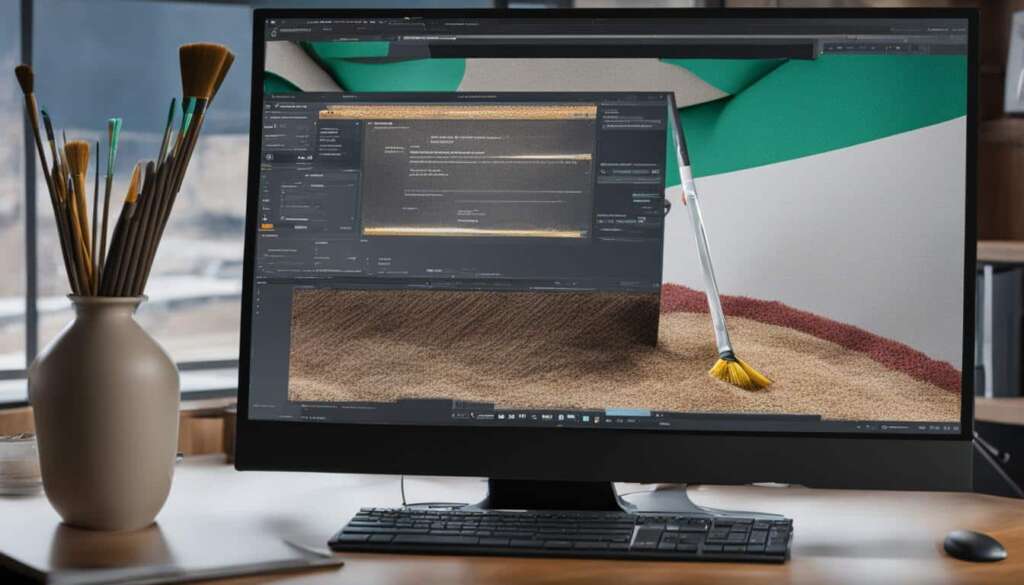Table of Contents
The history of computers spans over 200 years, from the early mechanical calculating machines to the sophisticated devices we use today. The concept of computers was born out of the ideas put forth by mathematicians and entrepreneurs, leading to the development of remarkable machines that paved the way for personal computing.
One of the notable figures in computer history is Charles Babbage, an English polymath who designed the Difference Engine and the Analytical Engine in the 19th century. Although Babbage’s machines were never built due to lack of funding, they laid the foundation for modern computers, making him a key contributor to the birth of personal computing.
The advent of electronic computers in the mid-20th century revolutionized the field. The ENIAC, the first electronic general-purpose digital computer, and subsequent developments such as the invention of the transistor by Bell Labs in 1947, brought computers from the realm of large, expensive machines to more accessible and affordable devices. These advancements set the stage for the rise of personal computers.
The personal computer era officially began in the mid-1970s with the introduction of the Altair 8800, a small computer kit targeted towards hobbyists. This was followed by the release of the Apple I in 1976, designed by the duo of Steve Wozniak and Steve Jobs. The Apple I marked the first fully assembled personal computer available for purchase, igniting a revolution in industries, business, education, and communication.
As we unravel the fascinating history of computers, it becomes clear that personal computing owes its roots to a lineage of brilliant minds and groundbreaking innovations. From Charles Babbage to the pioneers of electronic computers and the visionary entrepreneurs who brought personal computers into our lives, these individuals shaped the way we live, work, and interact with technology.
Charles Babbage and his Contributions
Charles Babbage, an English polymath, is often considered the man who invented computers. In the 19th century, he designed the Difference Engine and the Analytical Engine. While the Difference Engine aimed to compute polynomial functions, the Analytical Engine was a more advanced design with memory cards and punch cards for complex calculations. However, Babbage never built these machines due to lack of funding. Ada Lovelace, a mathematician and daughter of poet Lord Byron, is credited as the world’s first computer programmer for her work on the Analytical Engine. Babbage’s designs laid the foundation for modern computers.
“The Analytical Engine weaves algebraic patterns just as the Jacquard loom weaves flowers and leaves.” – Ada Lovelace
The Rise of Electronic Computers
In 1945, the world witnessed a significant breakthrough in computing with the construction of the first electronic general-purpose digital computer, known as ENIAC. Powered by vacuum tubes, ENIAC had the ability to solve complex problems and marked a major milestone in the evolution of computers.
However, ENIAC had its limitations. It was large in size, expensive to build, and required manual programming, making it less accessible for widespread usage.
But the landscape of computer technology was about to change forever. In 1947, the invention of the transistor revolutionized the industry. Transistors replaced the bulky vacuum tubes used in ENIAC, resulting in smaller, more reliable, and less expensive computers.
The advent of transistors paved the way for the development of compact electronic digital computers. Companies like IBM and Control Data Corporation introduced fully transistorized computers in the late 1950s, pushing the boundaries of what computers could achieve.
The introduction of transistors not only made computers more efficient but also set the stage for the future of computing—the personal computer.
Advantages of Transistors
Transistors brought numerous advantages to the world of computing:
- Smaller size: Transistors allowed for the miniaturization of computers, making them more compact and portable.
- Improved reliability: Compared to vacuum tubes, transistors were more durable and less prone to failure.
- Lower cost: Mass production of transistors made computers more affordable, enabling wider accessibility.
- Increased speed: Transistors facilitated faster computations, enhancing the overall performance of computers.
The introduction of transistors marked a turning point in the evolution of electronic digital computers. These advancements set the stage for the development of personal computers, ultimately shaping the way we live, work, and communicate in the digital age.
The Advent of Personal Computers
The personal computer market emerged in the mid-1970s with the introduction of the Altair 8800. This small computer kit, aimed at hobbyists, ignited the spark of personal computing. However, it was the Apple I, designed by Steve Wozniak and Steve Jobs in 1976, that truly revolutionized the industry. Founding the Apple Computer Company, they released the Apple II, a fully assembled computer with color graphics and groundbreaking software like VisiCalc.
The Apple II quickly became a commercial success, capturing the imagination of individuals, businesses, and educators alike. Other companies soon entered the personal computer market, offering a range of models to cater to different users’ needs. This era marked a turning point in the history of technology, as the personal computer became an indispensable tool for industries, businesses, education, and communication.
The Altair 8800 and the Apple I laid the foundation for what would become the personal computer market as we know it today. Their innovations opened the floodgates for a wave of creative and entrepreneurial spirit, shaping the future of computing. Their impact is immeasurable, as they paved the way for the advancement of technology and transformed the world we live in.
FAQ
Who is credited with inventing the personal computer?
The invention of the personal computer is often attributed to Steve Wozniak and Steve Jobs, who designed the Apple I and founded Apple Computer Company.
What were the early calculating machines called?
The primitive mechanical calculating machines from the 19th century were called difference engines and analytical engines.
Who is considered the world’s first computer programmer?
Ada Lovelace, an English mathematician and daughter of Lord Byron, is credited with being the world’s first computer programmer for her work on Charles Babbage’s Analytical Engine.
When was the first electronic general-purpose digital computer built?
The first electronic general-purpose digital computer, ENIAC, was constructed in 1945.
How did the invention of the transistor revolutionize computer technology?
The invention of the transistor in 1947 led to smaller, more reliable, and less expensive computers, replacing vacuum tubes and paving the way for advancements in computer technology.
What was the first fully transistorized computer?
The first fully transistorized computer was introduced in the late 1950s by companies like Control Data Corporation and IBM.
When did the personal computer market emerge?
The personal computer market emerged in the mid-1970s with the introduction of the Altair 8800, a small computer kit aimed at hobbyists.
What made the Apple II a commercial success?
The Apple II, designed by Steve Wozniak and Steve Jobs, became a commercial success due to its color graphics and software like VisiCalc.
How did personal computers revolutionize industries?
Personal computers revolutionized industries, business, education, and communication, becoming one of the most significant inventions of the twentieth century.







